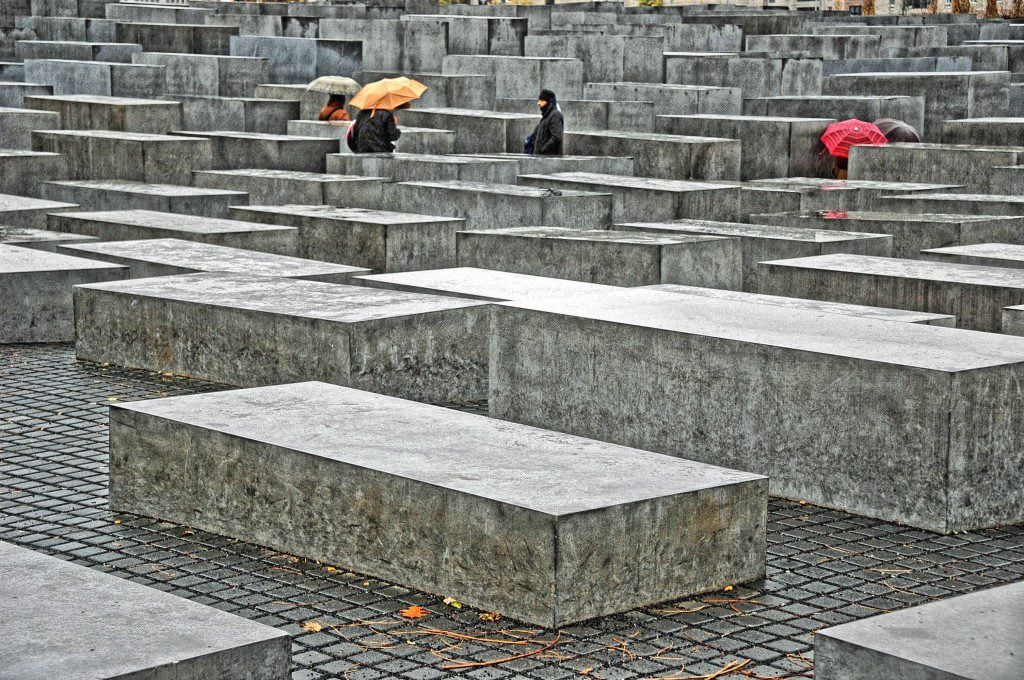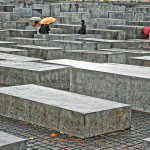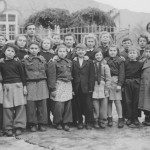
The headline is dramatic: 66% of Millennials don’t know what Auschwitz was, and 22% don’t even know what the Holocaust was. That’s according to a new poll, the Holocaust Knowledge Awareness Study, produced by the Conference on Jewish Material Claims Against Germany.
Just how dire a situation is it?
For comparison, the ADL produces an ongoing poll about antisemitic attitudes globally, and their 2015 poll reports that 93% of Americans say they have “heard about the Holocaust.” Of these, 89% say that they believe that historians have fairly reported the the number of Jews who died — vs. 1% who deny it, 5% who say the deaths have been exaggerated, and 5% who say they don’t know. This means that 83% of Americans in general say they know what the Holocaust was and that they accept the historical account — though, to be sure, the poll does not quiz them on what they think those numbers are.
For comparison, 93% of Aussies report having heard about the Holocaust, and of these 88% agree with the historical account. For Canada, 91% have heard of, and 90% of those agree with the historical account.
Now, the ADL does not split out these polling results by age, but the new poll shows relatively similar, but marginally worse results for this general question, 89% instead of 93%. Is this just a matter of margin of error in polling (the pollster, Schoen Consulting, reports a 3% margin of error)? Did the three year’s passage of time have a significant impact? Or was there something different about the polling method?
The new poll also does not ask whether the interviewee questions historical accounts but simply asks them to identify how many Jews were killed, and reports that 31% of all adults, and 41% of Millennials, said that 2 million or fewer were killed. Again, I’d like to see the poll design — we are increasingly conditioned to be moderate in our opinions, to choose B or C in our multiple choice answers. Were survey-takers asked to provide their own estimate, or given a set of choices, from which 6 million seemed like the outlier? Yes, people should know this basic fact of history, but is it really as bad as it looks?
Likewise, survey-takers were asked what Auschwitz was, with the answers:
- 40% Concentration Camp
- 23% Death/Extermination Camp
- 1% Forced Labor Camp
- 41% Not sure/Incorrect Response
Again, Millennials did worse, with 66% in the Not Sure/Incorrect Response question. (Note that my original impression was that this was a list of options, and survey-takers were stymied by the choices of either a concentration or a death camp, but in rereading it I’m guessing that they’re highlighting these other choices as multiple “correct” choices.)
And, again, I’d really like to know whether people were asked open-endedly to give their own best guess of what it was, and came up with answers like, “a World War II battle” or if there was something about the survey design that caused many otherwise-reasonable people to give a wrong answer or a “don’t know.”
The survey also asked about antisemitic attitudes, but in what seems to me to be a fairly useless manner, asking whether people thought that there were “other people” who were antisemitic. The ADL survey linked to above does a much better job of asking questions that identify whether one is oneself antisemitic, e.g., asking whether you agree with statements like “the Jews have too much power in business.”
All that being said, I do think that there is a likely issue around Holocaust education. Typically, children read The Diary of Anne Frank in 8th grade. Maybe they also read Night. But the problem is that, however much these readings might inspire sympathy with Jews in World War II, they provide no particular understanding of the broader context of World War II and broader issues such as genocide, totalitarian regimes, nationalism, and racism, let alone an understanding of similar events (Pol Pot, the Holomodor, etc.). And once students are high-school aged and maybe old enough for a more adult understanding of the topic, you’ve got World History now covering all of human history, all over the globe, with equal time to each part of the world.
And, finally, here’s a question for readers: why does it matter whether Americans specifically know what Auschwitz is, so long as they have the knowledge that, during World War II, Hitler and the Nazis, attempted to destroy the Jewish people, and killed horrifying numbers of them? Is it important as a sort of memorial to those who died? Or is it important as a signifier of adequate knowledge, in general? Seems to me that what’s most important is for Americans to understand that there have been multiple such events throughout even relatively recent history — and, on top of that, there is no good answer to what, if anything, Americans are obliged to do to prevent the next such instance.
Image: Berlin Holocaust memorial, Wikimedia commons (public domain).











